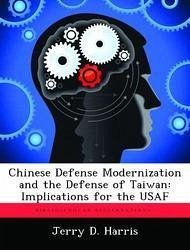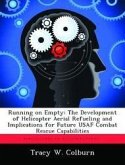This thesis analyzes the United States commitment to defend Taiwan from Chinese aggression. Taiwan can gain air superiority over Taiwan and defend itself from an amphibious invasion now, in Standard Form 298 (Rev. 8-98) Page 1 of 2 file://E:\ffcs_backup\ffcs\final\Harris_200107061032.298.html 06/18/2001 1998. However, in the next twenty years as Chinese defense modernization continues, China will surpass Taiwan?s ability to defend itself. Many US allies will not guarantee basing rights for during a conflict with China, so the United States military must be prepared to fight for Taiwan from locations in Taiwan and from US possessions. The ?one China? policy that the US currently backs limits the military options to preposition people and supplies on Taiwan. The long ranges inherent with Pacific operations, for both deployment and employment, require that we be ready to defend Taiwan from austere and distant locations such as Andersen AB, Guam. China?s ability to produce and procure modern weapons forces US and Taiwanese assets to fight within Chinese threat rings, while still achieving accurate results. US aircraft must be able to operate in these threat envelopes and gain air superiority, while supporting Taiwan?s amphibious defenses. The United States can defend Taiwan twenty years from now, by effectively addressing the implications of this thesis.
Hinweis: Dieser Artikel kann nur an eine deutsche Lieferadresse ausgeliefert werden.
Hinweis: Dieser Artikel kann nur an eine deutsche Lieferadresse ausgeliefert werden.








